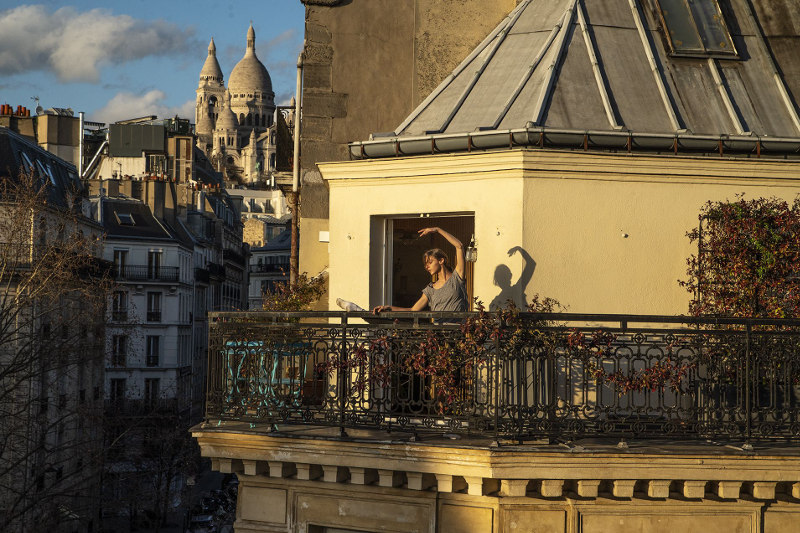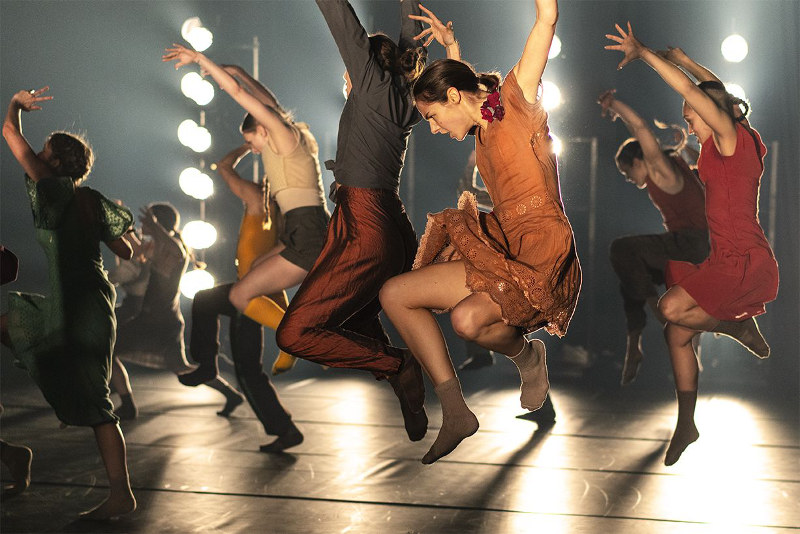
The French film En Corps, curiously translated as Rise and presented by Blue Fox Entertainment, is a well-made, earnest, and thoroughly innocuous movie. It will interest anyone who watched Natalie Portman in Black Swan and railed to the heavens, “Why didn’t they cast a real dancer in the role!?” This new film will more than satisfy. Marion Barbeau, who stars, is an esteemed première danseuse with Paris Opera Ballet who has distinguished herself in contemporary works by Ohad Naharin, William Forsythe, Crystal Pite, Hofesh Shechter. As the protagonist Elise, seen in almost every frame, she delivers a naturalness to the text and visually transfixes with her movement and simple gamine beauty. Despite the film’s many strengths–Elise’s newfound friend, Sabrina, played by Souheila Yacoub, who steals supporting scenes with delightful comic energy and Hofesh Shechter’s satisfying moments of choreography on stage and in rehearsal–Rise doesn’t, well, rise to the level it aspires as cinema.

Veteran director Cédric Klapisch and Santiago Amigorena’s script opens with a promising wordless fifteen minutes. We are offered a closeup off and on the stage of La Bayadère. In performance, we witness a romantic rupture and the subsequent inciting incident of Elise’s injury that propels her on a physical and spiritual quest for a second career and new life. We follow Elise as she visits surgeons and physical therapists and finds work as a caterer to pay her bills. There are moments of social commentary about current social norms and outdated rituals delivered with wit. There’s even a fun discourse, with choreography, on why tutus are ridiculous. If Rise had committed itself to a more biting, even cynical, discussion on present-day schisms between classical and modern, vegan versus viande, politically correct versus long-held values, with its seamless integration of dance, it would expand not only its audience but allow dance to add a unique voice to the cultural conversation.

What we are left with are tropes: working against all odds (Elise is told she may never dance again); unrequited parental and romantic love (Elise’s father unable to say the words “I love you” and her physical therapist’s awkward romantic advances); the wise elder (a Yoda-like figure who uses a cane giving Elise advice); bucolic frolicking on the Brittany coastline (in perfect choreographic bliss after a grueling but relentlessly ecstatic studio rehearsal). It’s refreshing to see artists embrace their world and work. But Rise’s narrative is couched in too many banalities and dramatic roles that unspool in the most predictable manner.
See this film if you want to spend a pleasant two hours with top French dancers as they rehearse, play, strive, love, and dance with a naturalness rare on screen. Rise’s tidy package, alas, pushes it toward cinema un-vérité.
Rise gets two tutus.
Rise | Laemmle Theatres | opens June 2
Stephan Koplowitz is a director/choreographer and the author of On Site-Methods for Site-Specific Performance Creation by day. By night, he’s an avid cinephile.
